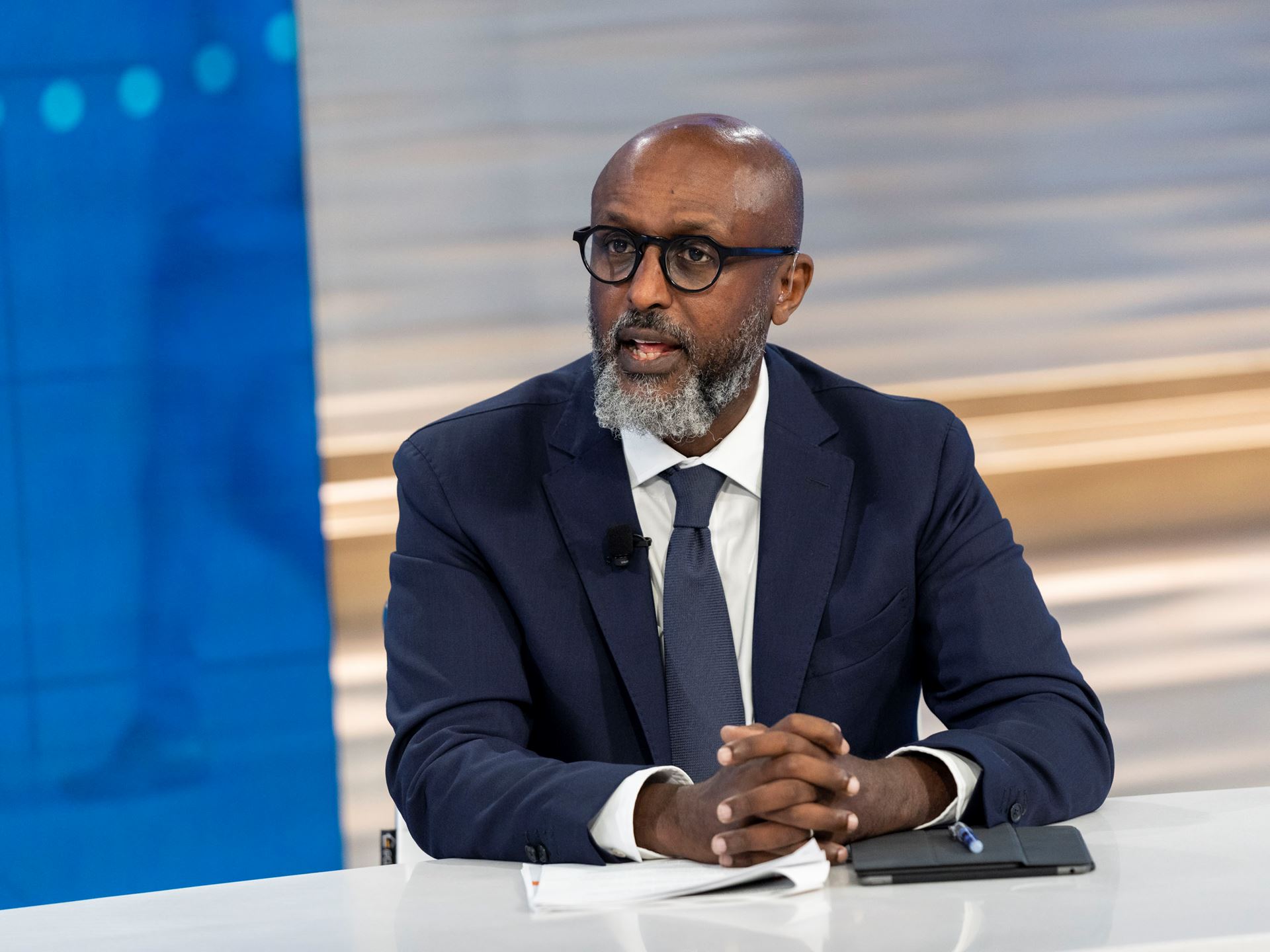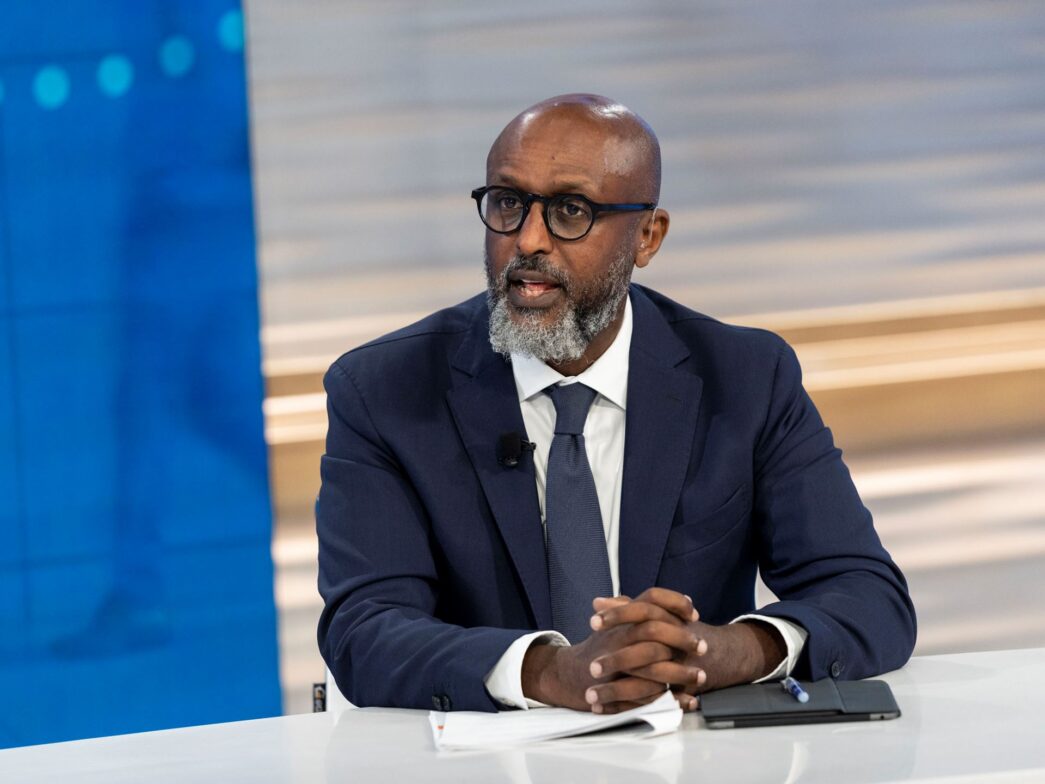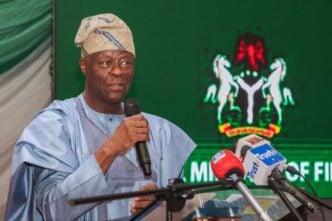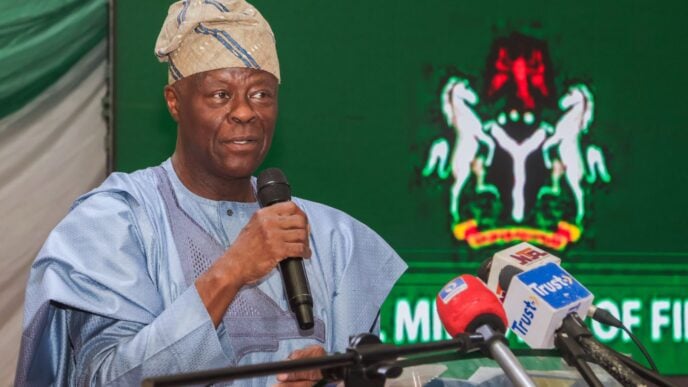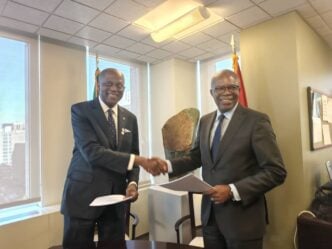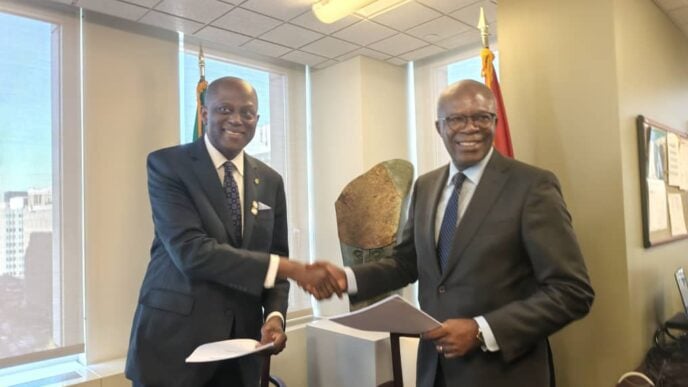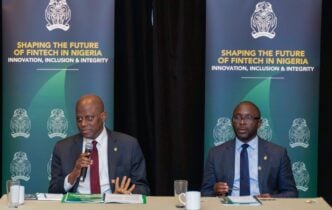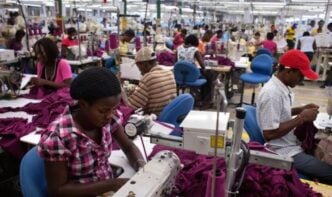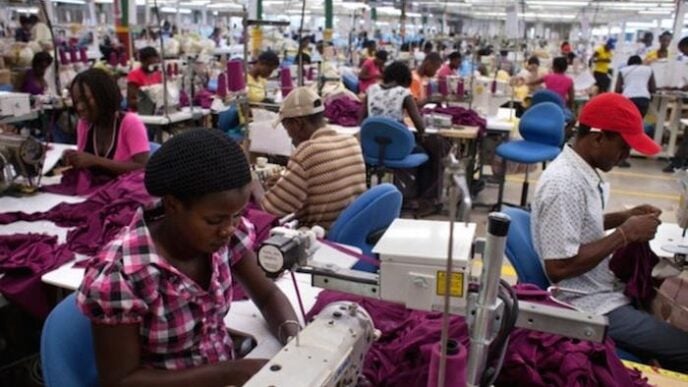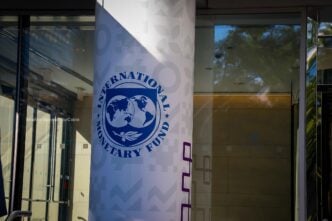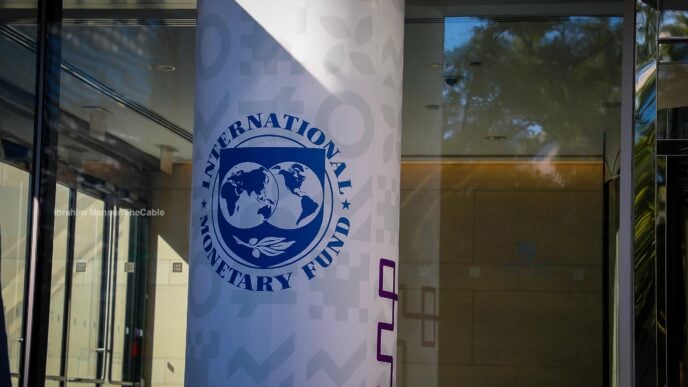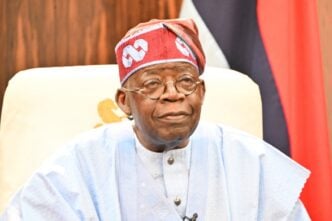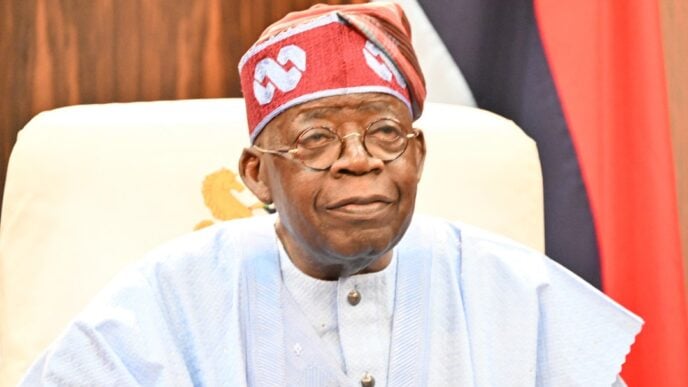Abebe Selassie, director of the African department at the IMF

The International Monetary Fund (IMF) says the decline in Nigeria’s inflation is due to tighter policy measures and adjustments in the exchange rate.
Abebe Selassie, director of the African department at the IMF, spoke on Thursday during the launch of the Regional Economic Outlook for sub-Saharan Africa in Washington DC.
On October 15, the National Bureau of Statistics (NBS) said Nigeria’s headline inflation rate dropped to 18.02 percent in September 2025.
Advertisement
“We find the declining inflation is consistent with the tightening of policies that have been taken in recent years, particularly on the monetary policy front, but also the effect of the exchange rate adjustment that took place over the last year or so having come through the system,” he said.
“So it is consistent with the policy calibration that we see. We’re encouraged by it, and I think there are still some ways to go to reach the government’s target.”
Selassie said although the pace of price increases is slowing, there has been a “level shift in the level of inflation”.
Advertisement
“And this is not unique to our countries; it’s elsewhere also, but particularly biting in our countries, exactly because this cost of living crisis has hit our people way more than others, with limited capacity to perhaps withstand this shock,” he said.
Selassie said the IMF does not want to underestimate the significant disruptions African countries have faced in recent years as a result of multiple economic shocks, stressing that public debt is high in many countries in the region.
‘TAXES MUST BE USED FOR THE RIGHT REASONS, PURPOSES’
Speaking further, Selassie said countries in sub-Saharan Africa are “trying to put in place the reforms that will encourage higher economic growth”.
Advertisement
“That is one important input that will contribute to making debt servicing affordable,” he said.
The IMF official said fiscal reforms are necessary in many countries, but the scale of revenue mobilisation and the reprioritisation of public spending required differ from one country to another.
“I think the broad direction of travel is one where our countries have been investing quite a lot in recent years, in infrastructure, in health, in public education, many important areas,” Selassie said.
“Perhaps one area where we have not done as well is capturing the rate of return on all of these investments through the tax system.
Advertisement
“And so, we see scope for revenue mobilisation. But this mobilisation has to go hand in hand with showing that the money that is being collected is being used for the right reasons and purposes.
“And so when you talk about tax levels, with people considering that tax levels are high, it’s because they don’t see enough infrastructure services and public services in terms of health, education.
Advertisement
“So, also demonstrating that money is being collected is going to the right areas, minimising leakages and corruption are also part and parcel of the effort that has to take place.”
Selassie noted that the severity of challenges in this area also differs across countries.
Advertisement
He said the Nigerian government has recognised domestic revenue mobilisation as arguably the most pressing challenge the country is currently facing.
“Extreme reliance on oil resources has been problematic for Nigeria, as minister Wale Edun has been saying and many others,” Selassie said.
Advertisement
He added that the government’s current focus is heading in the right direction.
